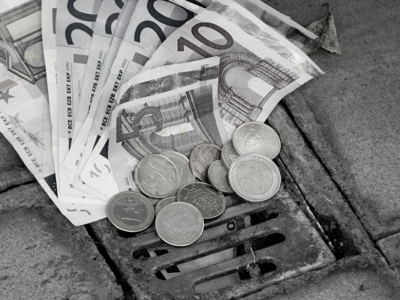The EU-China Comprehensive Agreement on Investment: the risks of navigating without a map

By Miquel Vila
17/02/2021
On the brink of 2021, China and the European Union (EU) signed the EU-China Comprehensive Agreement on Investment’s (CAI). The Commission argues that the CAI contains substantial concessions from China that would help balance trade relations and create a level playing field between both economies. China has agreed to open new areas of its economy to EU investment, be more transparent regarding its subsidies policy, and stop forced technology transference.
However, despite China apparently accepting most of the EU’s demands, nobody really feels the CAI was a win for Europe. Why is that? Beyond the serious concerns in terms of how the EU-China CAI may compromise the EU commitment to human rights and the lack of trust in China abiding by the terms of the treaty, the main problem the CAI poses for the EU is found in the bigger picture: specifically, in the fact that China has a broader geopolitical vision, and the EU does not.
The bigger picture.
What China wants from Europe is not a secret. Beijing seeks the European common market to remain open to its tech companies. This does not only fit with China’s economic needs but with China’s security concerns, Beijing wants European countries to remain neutral in its confrontation with Washington. Most importantly, this approach is framed in China’s long term vision, presented by the Belt and Road Initiative (BRI). The BRI aims to reshape the patterns of trade of the Eurasian landmass in which China would take an organizing role and in which Europe would fall within China’s orbit. Beijing does not only aim to keep trade open with the EU but to link European economic interests to the Chinese market. The CAI fits pretty well in this agenda, and therefore it can be considered an advantageous move from Beijing’s side.
Is it the same for the EU? For starters, the EU’s position towards China has been quite erratic; China has been defined at the same time as a “partner,” “economic competitor,” and a “systemic rival.” Nevertheless, beyond that, the EU, as an international organization born in the shadow of the US liberal hegemonic project, is having trouble adapting to a new geopolitical landscape. In the past few years, we have witnessed some attempts to address the situation in regards to the rising competition with China. For a time, it looked like consensus arose around the goal of boosting the EU’s own industrial capabilities and the need to be more independent from China’s value chains. The debate about Huawei’s 5G, and most recently, the lack of indigenous capacity to face the COVID19 pandemic reinforced the idea of a more independent Europe. However, the CAI points in the opposite direction.
Despite the talks about the need of a “geopolitical Commission“, the CAI elements highlighted as a win for the EU are not very different from what the EU has been asking every country in the past two decades. The main argument that can be grasped is that China’s market needs to work more in accordance with EU rules, and the CAI is the tool to make it possible. Defending the CAI on those grounds ten years ago – when the negotiation began – might have been credible; doing so in 2021 is cynical at worst and naïve at best.
Do we all fit in the picture?
One thing stands clear: despite the rhetoric, the goals of the CAI do not have much to do with changing China’s market rules but with securing access to China’s markets, which is not the same. On paper, that should not be a concern. However, it becomes a problem when the largest European economy, Germany, has been growing more dependent on China’s trade over the years. In a context of expected recession, guaranteeing a position in the Chinese market is no longer a matter of economic opportunity, but of survival, for German automotive industry.
The current arrangement might work for Germany’s short-term interest, but that does not mean it serves a common European interest. Moreover, in the long-run, this path does not look promising. For instance, China’s electric vehicles industry is booming and it is doing so on its own merits. Sooner than later, Chinese companies will outcompete German carmakers in China’s market, opening the door for the same to happen in Europe too. We have already seen the beginning of this dynamic in the aviation industry. As European supply chains grow more dependent on the Chinese market, it will be more difficult for them to find a way out before it is too late.
The provisions of the CAI regarding subsidies or forced technology transfers are not going to prevent that. If Europe wants to rebalance its position vis-à-vis China, instead of strengthening the links between both economies, Europe should be reinforcing its own capabilities. The geopolitical fate of Europe’s standing does not lie in its position in Chinese markets, but rather in its capacity to present an alternative able to compete with China’s growing influence in Eurasia. Despite lacking an in-depth vision, the Europe-Asia connectivity plan and the agreement with Japan pointed to a better direction than the CAI. For the EU to pursue such an ambitious approach, it would need to advance beyond its current status and implement a critical structural reform that rebalances its internal disparities. However, such profound changes are unlikely to happen.
Germany’s unbalanced influence – and to a lesser degree France’s – over the EU has direct repercussions on the prospects of a common foreign policy vision for the EU. As Noah Barkin has recently written, Merkel perceives Germany – and thus the EU – as a declining power. Instead of seeing Europe as a potential major power of a multipolar order, equal to the US and China, the German chancellor sees it as an intermediate between them, with Berlin playing the role of power broker. That means there is no room for an ambitious “Geopolitical Europe.” On the other hand, Macron’s France, which has interests in the Indo-Pacific, and a more reinvigorating outlook of Europe’s future, lacks the power to meet its words with actions. In this situation, Paris will also opt to look for itself.
France and Germany have been talking European while playing national. And of course, reducing the common foreign policy as a tool for greater EU powers to sound high-minded when pursuing their own agenda will not work for other European countries’ interests. But, maybe reaching a strategic consensus on China, one that really bears in mind the interests of all member states, is just an unreachable goal. All EU nations should be wise enough to take this into account.
Prospects for Catalonia?
As there is no common European strategic framework in which to address the relationship with China, the direction pointed by the CAI puts Europe in a weak position. As Dani Rodrik argues, the CAI’s main risk is not what is unlikely to achieve in China, but how its logic may endanger Europe’s autonomy. This is especially true for European peripheral industrial territories, as is the case of Catalonia.
First, the CAI might facilitate the moving of European companies’ supply chains to China instead of reinforcing European industries. Some of the areas expected to be more open to the EU’s investment in China are similar to those that receive more European investment in Catalonia. Similar concerns may explain reservations of Eastern European countries – highly linked to German industries’ value chains – to the CAI.
An increase in Chinese investments might compensate for that. Nonetheless, Chinese investments in Catalonia are quite limited, and the CAI does not really open new fields for Chinese capital in Europe – which is already quite open. The main goal for Beijing here is to protect its investments in the long run. Beyond specific opportunities that may surely arise, it is difficult to see how new Chinese operations could compensate for the hypothetical loss of European ones. On the other hand, it may not be a desirable outcome in the first instance. In this way, the anticipated arbitration mechanisms of the CAI may limit EU member states’ capacity to block Chinese operations, especially the smaller ones.
Second, beyond the economic concerns, there is also an impact on the broader political mood in Europe. Nowadays, an important demand from Catalonia to EU institutions is to guarantee Catalan rights as a national minority. So far, the EU has not been doing much about that. However, seeing how easy it has been for EU institutions to tacitly accept China’s policies reinforces a trend of lack of interest in the EU in defending the values the Union supposedly stands for in and out of its borders.
The CAI may open new opportunities and make things easier for some European companies. But, its lack of strategic depth reinforces a logic that puts most European nations in an even weaker position vis-à-vis Beijing. Reaching agreements with China should not be necessarily an error. However, what is definitely problematic is doing so without a clear course of action in mind. That is a broad vision of not where EU-China relations are headed, but of the geopolitical role the EU wants to play in the world, which will frame this relationship. This can only be achieved through deep internal reform and rebalancing; however, it seems unlikely to happen.
Miquel Vila is the Executive Director of the CGI. He is specializing in geopolitics and geoeconomics of China and the Indo-Pacific region; and in limited recognized state entities.
The opinions expressed in this publication are those of the authors. They do not purport to reflect the opinions or views of the CGI or its contributors. The designations employed in this publication and the presentation of material therein do not imply the expression of any opinion whatsoever on the part of the CGI concerning the legal status of any country, area or territory or of its authorities, or concerning the delimitation of its frontiers.


